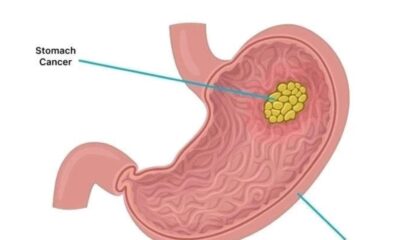Dear doctor,
My body smells bad, even though I shower daily. This is worse during the hot seasons. I dislike myself, and this has made it difficult to even approach any girl that I admire. Is there anything I can do about it?
Wamalwa
Dear Wamalwa,
Every person has a smell coming from their body, which is called body odour, that is a result of a breakdown of sweat, oils and proteins by the bacteria that live on the surface of the skin. The body odour is different in babies, children, teenagers, adults and the elderly…Click Here To Continue Reading>> …Click Here To Continue Reading>>
An unpleasant body odour is called bromhidrosis osmidrosis or ozochrotia. What is regarded as acceptable is affected by personal preferences, culture and social set-up. Body odour increases after puberty following the development of the apocrine sweat glands located in the armpits, the pubic region and the breasts.
Men also tend to have more body odour than women, because they tend to sweat more. Individuals who sweat excessively experience more body odour, especially from the armpits and the feet.
What you take can also affect your body odour e.g. spicy foods, garlic, onions, red meat, alcohol or some medications. Being overweight or obese also increases the likelihood of having worse body odours due to increased sweating.
Other factors that may increase body odour include diseases like liver disease, kidney disease, some cancers, diabetes, or the rare genetic condition trimethylaminuria.
Steps to reduce body odour include:
– One or two daily showers, and washing the armpit thoroughly, using antibacterial soap if possible
– Regularly shaving the armpits for faster evaporation of sweat
– Using a clean towel to dry off, and taking care to dry between the toes
– Wearing clothes and socks that are clean, and that are made of natural fibres
– Wear open shoes as much as possible
– Reduce consumption of alcohol and foods that can contribute to body odour
– Use under-arm deodorant and deodorant foot powder.
– Apply aluminium chloride or 0.5 per cent glycopyrrolate solution on the armpits. This can be applied before going to sleep, to reduce sweating the following day. Alternatives include the use of baking soda or vinegar, with or without added essential oils.
It is also advisable to be reviewed for any underlying health conditions so that they can be addressed. In addition, different procedures can be done by a skin specialist to reduce sweating, which will possibly reduce body odour.
Dear doctor, READ FULL STORY HERE>>>CLICK HERE TO CONTINUE READING>>>
Is there a way I can get my baby to walk early? Should I get her a walker?
Dear parent,
Each child develops at their own unique pace, and while there are generally expected timelines when certain milestones are reached, this will vary from child to child. Babies usually start to walk at between 10 and 18 months of age, and they begin to get ready by crawling and pulling themselves up to a standing position thus developing muscle strength and balance.
To support the baby, allow the baby to play and explore safely. Avoid walkers, as they may delay walking because they reduce the time when the baby practices walking on their own. They also carry an increased risk of accidents.
Dear doctor,
My mum was diagnosed with an underactive thyroid. At the time, she was so sick that she had to be admitted. What could have caused this and can it be reversed?
Njoki
Dear Njoki,
The thyroid is a small gland that is located on the front of the neck. It releases thyroid hormones that are useful in how the body utilizes energy, and when the thyroid is underactive because there is less production of thyroid hormones, then many body functions slow down.
The most common cause of an underactive thyroid is the auto-immune disorder called Hashimoto’s disease. In this disease, the body’s immune system attacks the thyroid, and it is not able to work normally.
An underactive thyroid may also develop due to inflammation of the thyroid (thyroiditis), which may initially cause increased production of thyroid hormone, then becoming underactive thereafter.
The thyroid may have reduced thyroid hormone production following surgical removal of part of the thyroid, or following radiotherapy. Some medications affect the function of the thyroid gland e.g. some heart medications, treatments for bipolar disorder and cancer medications.
Women are more likely than men to have an underactive thyroid or hypothyroidism. You are also more likely to develop the condition if you have another auto-immune disorder, or if there’s a family history of thyroid disease. There’s also an added risk of developing thyroid problems during and/or soon after a pregnancy.
With an underactive thyroid, the individual may experience constant fatigue, joint and muscle weakness, stiffness and pain, weight gain, dry skin and hair, menstrual abnormalities, low mood, poor memory, slower heart rate, inability to tolerate colds, and constipation.
Severe hypothyroidism, also referred to as myxedema, is characterized by swelling of the skin e.g. on the arms and legs, and swelling of the face, lips, tongue and eyelids, in addition to the other symptoms of hypothyroidism.
A myxedema crisis is a medical emergency, with decreased breathing, low blood oxygen levels, low body temperature, and low blood sodium levels, and there may be confusion, seizures, shock, coma and even death. Persons over the age of 60 are more likely to go into a myxedema crisis.
It usually develops after having hypothyroidism for a long time, and the crisis may be triggered by stress, infection, trauma, other illnesses and some medications.
An under-active thyroid is diagnosed through tests to check the thyroid hormone levels. Other relevant tests may be done, including thyroid scans, and tests to check for other illnesses. Treatment includes thyroid hormone replacement treatment and supportive management for other symptoms or complications.
There is no permanent cure for an under-active thyroid, and the thyroid-replacement treatment should be taken for the rest of the individual’s life. With adequate treatment, further complications can be avoided and the individual can live a full life.


 HEALTH & LIFESTYLE10 months ago
HEALTH & LIFESTYLE10 months ago
 SPORTS11 months ago
SPORTS11 months ago
 METRO6 months ago
METRO6 months ago
 SPORTS9 months ago
SPORTS9 months ago
 SPORTS10 months ago
SPORTS10 months ago
 SPORTS11 months ago
SPORTS11 months ago
 METRO6 months ago
METRO6 months ago
 SPORTS9 months ago
SPORTS9 months ago


